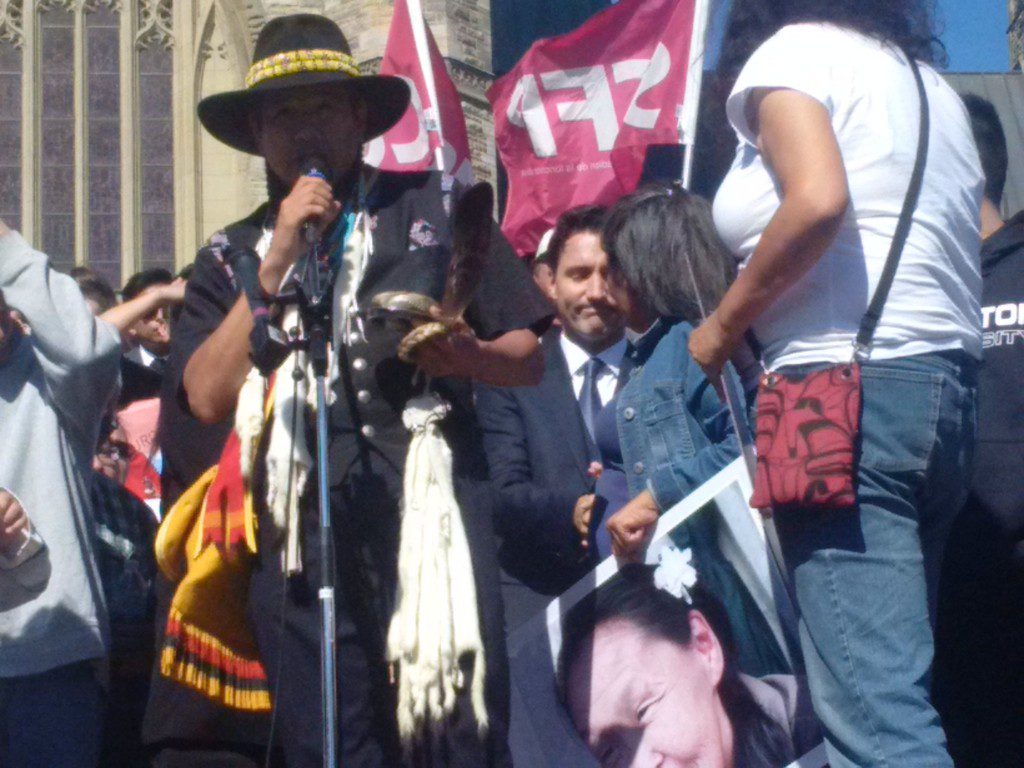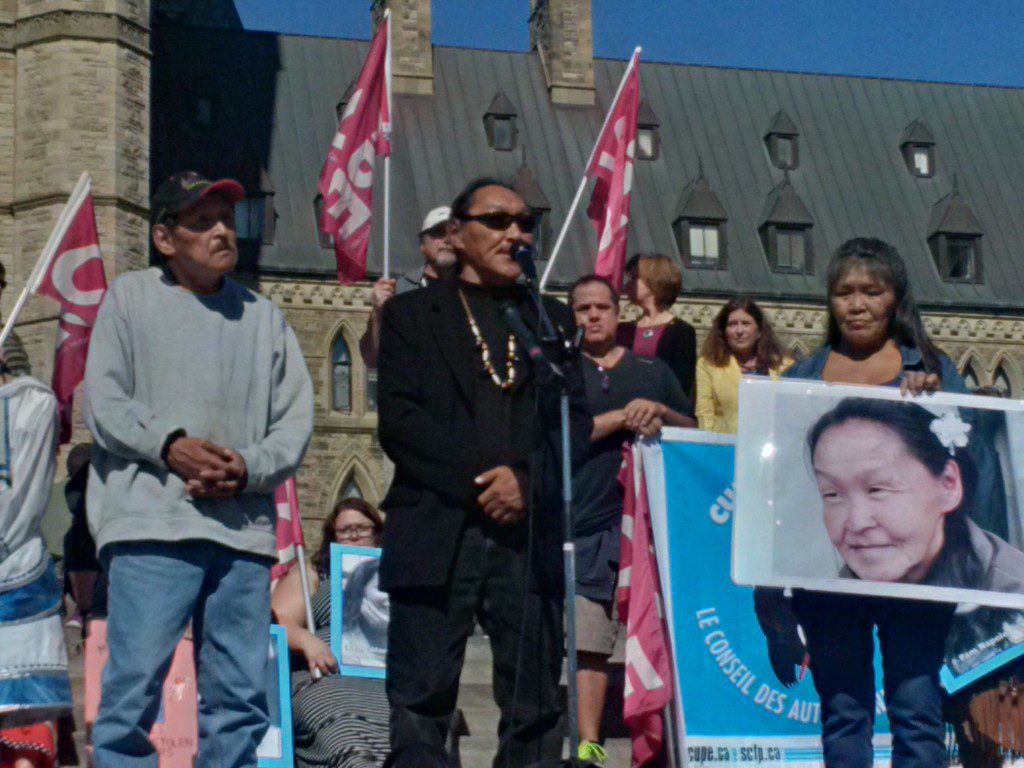Jorge Barrera
APTN National News
Prime Minister Justin Trudeau became the first prime minister to ever attend the annual vigil on Parliament Hill for murdered and missing Indigenous women on a day when the focus centred on the recent death of Inuit artist Annie Pootoogook.
Trudeau spoke at the vigil Tuesday with the Peace Tower rising behind him while Pootoogook’s cousin Kilatja Simeonie sat on the steps before him holding a large photograph of Pootoogook whose image appeared among the dozens held by the family members of the missing and murdered who are remembered on this day.
“It is always a sad moment of reflection to remember the sisters who’ve left us, who were taken from us, the families that were left behind and the hope that was extinguished with their disappearance,” said Trudeau. “I hope we continue to gather on these steps for as long as parliament behind me stands, for many, many decades and centuries, to remember the beautiful sisters who were taken from us that we weren’t able to protect.”
Pootoogook’s body was found in the Rideau River on Sept. 19 about two kilometres northeast of Parliament Hill.
Shortly before he spoke Trudeau shook hands with Simeonie. Simeonie said she was grateful to the prime minister for choosing to attend a vigil.
“It feels so special because it seems like for the first time an Inuk member is in this ritual,” said Simeonie. “It’s sad to see lots of Indigenous women being missing and murdered.”
Pootoogook’s brother Pauloose Joanasie also attended the vigil and he spoke words of thanks in Inuktitut to the crowd for honouring his sister’s life.
As he was walking away from the lawn of Parliament Hill he said he was surprised the prime minister appeared at the vigil.
“I didn’t expect to see him,” said Joanasie. “My heart is so light, so happy.”
The vigil, now in its eleventh year, often featured speeches calling for a national public inquiry into the disproportionate number of murdered and missing Indigenous women. On Tuesday, many of those speeches criticized the approach and pace of the inquiry and the Trudeau government.
The inquiry, headquartered in Vancouver, is still slowly coming together and likely won’t hold hearings this year.
“I for one am tired of standing in front of the house of broken promises that they have given us over and over,” said Laurie Odjick, whose daughter Maisy Odjick vanished without a trace in 2008. “A national inquiry was launched, we gathered as families and we shared our journeys and our pain and our grief and yet we still feel like we are forgotten, no answers. Shame on them.”
Connie Greyeyes, whose cousin was murdered in 1993, echoed Odjick’s statements.
“Their reconciliation looks a lot like colonization,” said Greyeyes.

Pootoogook’s case encompasses many of the elements that turned the issue of murdered and missing Indigenous women into a national tragedy which lead to the creation of a public inquiry.
Ottawa police initially announced no foul play caused the death, then, a week later, reversed position and said it was suspicious.
In the midst of this, an Ottawa police officer posted racist online comments in response to a story about Pootoogook. Ottawa’s police Chief Charles Bordeleau announced he was looking into the comments, but later said he did not believe any of his officers were racist. Ottawa’s Mayor Jim Watson fell short of calling the comments racist.

Pootoogook lived her last days in fear from what she told friends was an abusive relationship. She moved through the margins of the city. Police investigators are having trouble piecing together the events that led her to the river.
“I wish Annie was standing here, but she was found in the river. The systematic racism started already. The systematic injustice started already,” said Sytukie Joamie, Pootoogook’s second cousin and an Inuit community worker, during his speech. “Annie was afraid to go near the water, yet she was found in the water. In this capital of this nation, one of our sisters was found under very suspicious circumstances, yet … the police said there was no suspicion. The Inuit community, when we heard about Annie being found, we knew right away that it was suspicious, because nobody walks into the water….It is shameful the police said there was no suspicion.”
Simeonie said she still struggles with Pootoogook’s death.
“I’m hurt, saddened, crying,” she said. “Even sleepless nights. It’s so shocking. She is suddenly gone.”
@JorgeBarrera










